Oscar Hemer: “Writing Itself Is the Most Important Methodology”

Oscar Hemer, co-director of Ørecomm, on his new project Writing Across Borders; what makes ethnographic fiction and why wedding literature and academia is not the best idea for a career.
You are just back from your writing retreat in South Africa working on the Writing Across Borders project. What were the key topics you conducted research on and how are they reflected in your writing?
The project actually has a double title, Writing Across Borders / In Praise of Impurity. It is about crossing borders in many senses, literally and metaphorically. Primarily, perhaps, the crossing of genre boundaries. I am a literary writer and an academic researcher. These are different practices, but I’m puzzled to explore whether they can actually converge, and what happens if they do. Therefore I have been experimenting with a transgressive form that I tentatively, for lack of a sexier term, call ethnographic fiction. But I am also interested in the notion of contamination in a wider sense. I think the root of contemporary evil, such as neo-nationalism, xenophobia and radical identity politics, can be explained and understood by the dichotomy purity-impurity (as introduced by the British anthropologist Mary Douglas in her modern classic on Purity and Danger). The politics of purity are all too evident at present, in its extreme interpretation by IS and al-Shabab, and in less murderous form as the wave of European right-wing populism, from radical Golden Dawn to moderate UKIP. But what would a politics of impurity be like? What are the implications of cosmopolitanism and creolization? I think South Africa is an immensely interesting case in this respect and I hope to continue what I started in Stellenbosch in a longer-term project.
Who is the protagonist of the story?
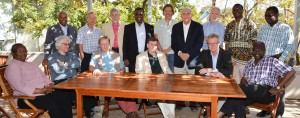
Well, it is not a story in a regular sense. Or in a way it is. I haven’t quite figured out the format yet, but I’m working on an ”ethnographic fiction” where the main protagonist would be a slightly distorted version of myself. A basic storyline would then be my actual stay as a fellow at STIAS (Stellenbosch Institute for Advanced Study), and some of the events that occurred during that time, in Stellenbosch and in South Africa in general. It was – it is – a very dramatic moment in South Africa’s on-going transformation. The international attention has mostly been on the outbursts of vile xenophobic violence, but there is also a new movement of social and political engagement that very clearly connects to the Black Consciousness movement of the anti-apartheid struggle.
Your books are unique in a sense that they combine literature with anthropology. What predominates in your writing: truth or fiction?
I wouldn’t say that they do, as yet. My dissertation in anthropology had literary elements – but not fictional! – and after completing that research project I returned to writing novels. I’m still not sure whether these different practices can or should be combined. That remains to be explored in my new project. The question of fiction and truth was crucial for my dissertation, but now I find it somehow overruled. It was never an either-or, but now I’m more interested in other issues. Such as the notion of contamination. Why is it that purity connotes all the positive values in our culture, whereas contamination is almost by default regarded as something negative and undesirable.
Once you said that it was Truth and Fiction project that inspired you to enter the field of ethnographic fiction. The outcome of that project was a dissertation which incorporated elements of reportage, essay and memoir. What was the most challenging in this work in comparison to common academic research? How was your paper received by audience?
Well, I did not have any previous experience of “common academic research”. I tried to do research “from a writer’s perspective”, whatever that entails, and yet I was determined to fulfil all the academic requirements in terms of references, rigor, etc. I was probably too respectful and in the end more academic than I had originally intended, or imagined. So, the challenge for me was actually to meet the academic standards without compromising too much in terms of writing style and disposition. About the reception, I don’t really know. I believe that very few people have actually read the whole book, but the response I did receive from my examiners and others has been very encouraging.
The education field has been changing and we can see that innovative approaches play an important role in development studies. How do you think ethnographic fiction could assist studying society’s transformation?
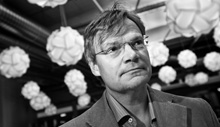
I think there are different means of innovatively approaching the challenges of today’s world. The ethnographic fiction may be one – and there may be many different varieties of it. I did one form in a study on Bangalore (Bengaluru Boogie, in the anthology Memory on Trial), and I do not intend to repeat that formula but do something different with regard to Stellenbosch and South Africa. But I should also say that this experimentation with genres is something that I don’t recommend as a career option. Art and Academia are sovereign states with very specific sets of rules. Trying to abide to both may well result in being expelled from both. It may turn out that it gives neither academic nor literary merits.
What would you recommend to a researcher willing to try one’s hand in ethnographic fiction? Are there any essential don’ts to keep in mind?
Be very aware of what you are doing – and for what purpose! And make the fictional element transparent! Literature can encompass everything, but in order to pass as research (academic or artistic), there has to be a meta-dimension and a certain reflexivity. I believe. But I certainly encourage experimentation. And the perhaps most important thing I learned from my dissertation is that writing itself is the most important methodology.
When do you plan to release the publication Writing Across Borders?
There will probably be a series of different publications, of different kinds. I am working on a text, as a result of my stay in Stellenbosch, and I will hopefully have time to complete it in the summer. But how and when it will be published is too early to say.
Images via private archive; mah.se
 New PhD opportunities at the University of Leicester
New PhD opportunities at the University of Leicester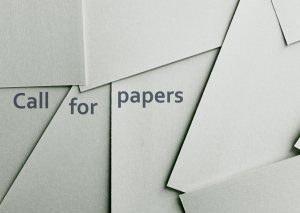 Call for Abstracts: New Directions in Media, Communication and Sociology (NDiMS) Conference
Call for Abstracts: New Directions in Media, Communication and Sociology (NDiMS) Conference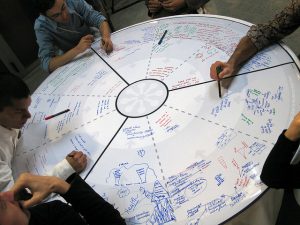 Ørecomm Team to Gather at the University of Coimbra
Ørecomm Team to Gather at the University of Coimbra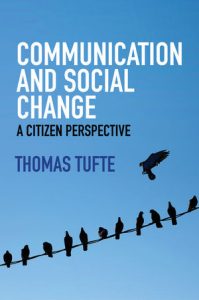 “Communication and Social Change – A Citizen Perspective” Published
“Communication and Social Change – A Citizen Perspective” Published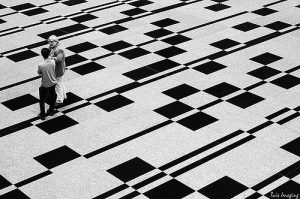 C4D Network to Sum Up Global Communication for Development Practice
C4D Network to Sum Up Global Communication for Development Practice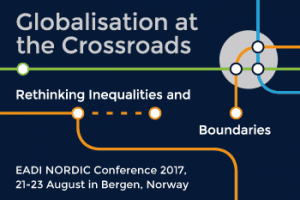 Entering Media and Communication into Development Conferences?
Entering Media and Communication into Development Conferences?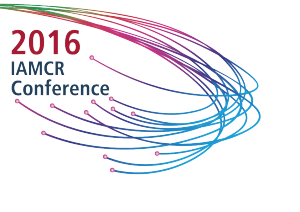 IAMCR Conference 2016: Communication for Development Highlights
IAMCR Conference 2016: Communication for Development Highlights Glocal Classroom Revisited – Storytelling & Social Change Leicester-Malmö
Glocal Classroom Revisited – Storytelling & Social Change Leicester-Malmö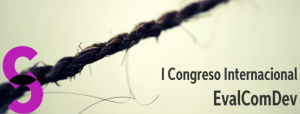 I EvalComDev International Conference: Call for Papers
I EvalComDev International Conference: Call for Papers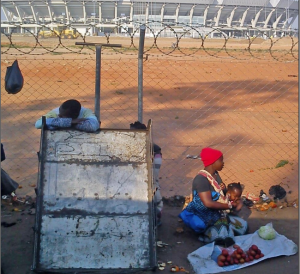 Looking for Media and Communication in Development Conferences: Devres 2016
Looking for Media and Communication in Development Conferences: Devres 2016